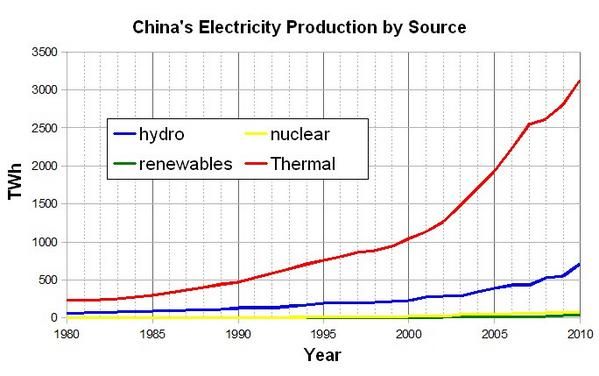When and How Will China Stop Burning Coal?

The truth, impossible as it may seem, is that a solution to this dilemma needs to come from countries all around the world, and especially the U.S.
A couple of years ago, a senior researcher from Germany spent a few weeks in America, tasked by the Merkel administration to interview a few dozen people here who study renewable energy, and I was flattered to be on his list. We sat and spoke for a couple of hours, during which time I answered his questions about all the things that Germany can be doing to enhance its approach to energy. There seemed to be no limit to the variations of the theme: How can Germany rise as a superstar among nations?
Near the end of our time together, I told the fellow, “Please don’t take offense to what I’m about to say, but, at the end of the day, it really doesn’t matter what Germany does, if we can’t create a scenario in which the U.S. and the large nations in Asia to get on the right track. There are 60 million Germans, but 1.35 billion Chinese, and they’re building a new coal plant at the rate of approximately one per week. We either solve this problem on behalf of all the peoples of the Earth, or we’re all doomed to catastrophic environmental damage.”


Craig,
The agreement that China and the U.S. just reached is the biggest deal thus far in terms of mitigating greenhouse gas emissions. It’s exciting because for multiple reasons:
First, it happened. We shook on it, and both of our respective country’s reputations are to some extent on the line to make it happen.
Second, because it’s HARD. We in the U.S. are committed to reducing our emissions to 5.2 billion metric tons CO2-e by 2025! I don’t even know HOW we can achieve that. There’s no plan in place that would come close to that… It’s simply beyond anything we’ve attempted in this country since the moon landing. On the other side of the world, China agreed to 1/4 of their energy by 2030! To put THAT into perspective, the U.S. is a very wealthy and well established first world country, and we’ve only been able to advance our non-fossil energy ratio from 28.7% of the grid in 2004 to 32.3% of the grid in 2013 – a total shift of 3.6% in a decade. For a poor industrializing country to attempt a 10% shift in a decade (China already had an existing goal of 15% by 2020), will be an unbelievable feat that – if they can somehow manage it – they will absolutely deserve to be lauded for.
Third, it’s important because it’s at least something akin to plausible. I don’t know exactly how either country will pull off it’s goals, but I’m excited by the fact that it feels like its possible for both countries to pull off the goals. It’s on the edge of believable, so it might actually get done. Had both countries stated they would cut emissions in half by 2030, then everyone would have just shrugged it off as BS – a toothless boast that everyone knows is impossible. Instead, it’s hair-raising in the level of difficulty required… and I think both countries are underestimating how hard this will be to fulfill… but it SEEMS plausible, which means both countries will lose face by not reaching the goal – which means they are going to break themselves trying.
I suspect China will meet its goal, and the U.S. will miss our goal by a year or two, because democracies are greater procrastinators than authoritarian government structures. But nontheless this handshake will likely mark a difference of over a billion tons a year in global emissions by 2030.
This is a BIG deal.
I’m glad you regard this with such promise. I need to make a more elaborate comment on it.
Craig,
I look forward to your post on this. This is – without exception – the biggest move forward in reducing global emissions since the Kyoto accords, and it probably exceeds Kyoto. It was a TREMENDOUS event, and so far the left has regarded it with little more than a shrug.
It would be nice to see this get some more attention.